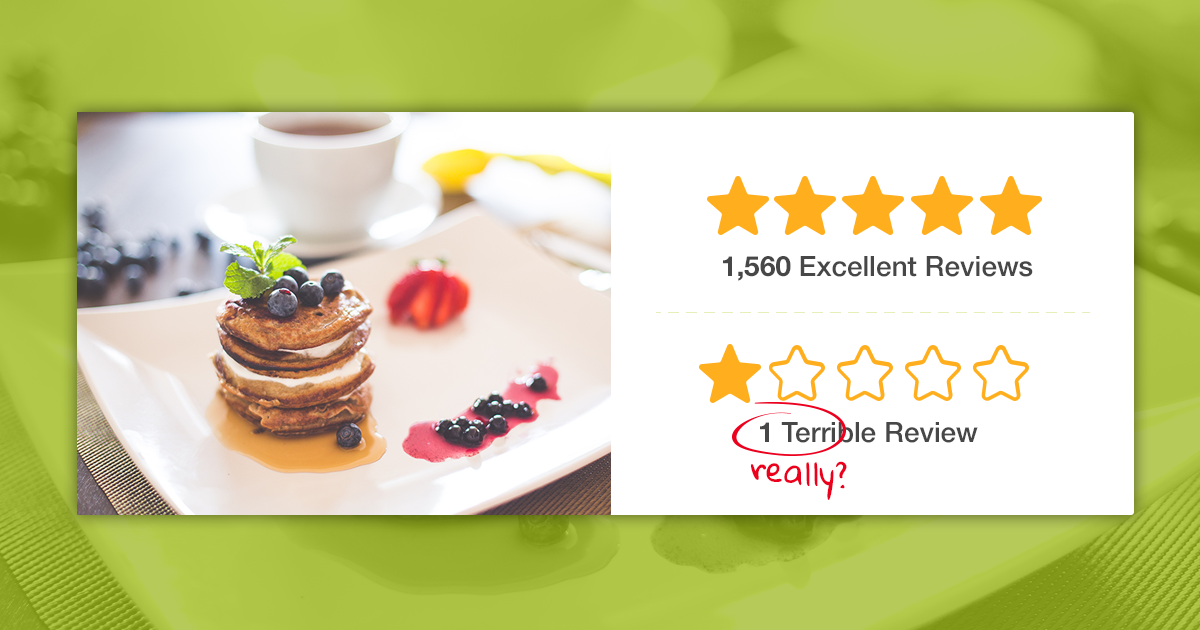The power of reviews and testimonials are undeniable. Some research suggests a lot of reviews can increase sales by 35% or MORE.
I know it. You know it. And BUSINESSES know it. Good reviews persuade us to buy things we may not have bought otherwise.
And that’s why testimonials and reviews can actually HURT Your sales.
I’ll explain…
Let’s say you stumble on a product (or service) that has reviews that look sort of like this:

What’s the FIRST thing that pops into your head?
Either the product is the BEST product since the invention of the wheel… or the reviews are fake.
Right?
Sure, you might give it the benefit of the doubt, but you probably couldn’t help but think to yourself, “something is fishy.”
I know when I see too many positive reviews, I often think they’re fake. Even if it comes from someone I trust.
Is it because we’re naturally skeptics?
Maybe.
But as I dug deeper, I realized I wasn’t alone. When I asked friends about what they thought about positive reviews and they too also thought that too many positive reviews may be a tell-tale sign for “fake reviews.”
And can you blame us?
A few months ago, Bell Canada launched an app that allowed their customers to manage their mobile accounts, and the reviews were stellar.
But it didn’t make sense to my friend Scott Stratten. He used the app, and it was horrible. He knew others who used it and hated it too. So, when he dug deeper he discovered that many of the positive reviews were left by employees who worked at Bell Canada.
Or, in other words, the reviews were fake.
This made the news all over the world. A big company got caught creating fake reviews… and they later got fined $1.25 million dollars for it.
Now you might be thinking “that’s a big dumb company. Of course they do something stupid like that.”
But what about the “grey” area of asking your friends for a testimonial?
I mean, what’s the harm in that, right? Chances are you have friends who are also colleagues and colleagues who are also friends. And chances are you’ve actually worked with these people before so you’re not asking for a fake testimonial… It’s real, right?
Well, put yourself in your customers’ shoes for a second. We are skeptical of reviews and testimonials. And if we subscribe to your newsletter, we probably have a vague idea who you are friends with and who you’re not friends with. I mean, the people who read your newsletter and website are not idiots. They’re people. Often smart people. Now what do you think they think when they see a testimonial from one of your friends?
If you’re thinking, “they might think it’s fake,” DING DING DING. We have a winner. You’re right.
Now imagine how that impacts sales…
It’s not good.
And that’s why you should almost never ask your friends for testimonials.
Now I know I went all negative for a minute…
…but as I said: testimonials can also BOOST sales significantly.
Here’s How Testimonials (And Reviews) Increase Sales
But not all testimonials are bad.
And that’s why I put together this short 6 minute and 52 second video where I walk you through how to create what I call “The Perfect Testimonial.”
The best part?
Personally I’ve always felt testimonials and reviews could seem so “salesy.” But when you do them right they actually help your customer (and your business).
Here’s why…
One of the MAIN things I share in the video is this: instead of just featuring superflous comments like “I LOVE WORKING WITH THEM!” I encourage you to go deeper and focus on specific customers, specific problems, and help you provide an experience for your prospects that makes them say WOW.
And let me tell you, it works.
I mean, I’m good friends with Marie Forleo, Ramit Sethi,and countless other entrepreneurs. In many cases, our friendship is blurred with business. I’ve spoken at Marie’s conference, I’ve been featured in Ramit’s membership program, and in general, I’ve worked or partnered with many of these people in some shape or form. If I asked each of them for a testimonial, they could give one based on real and factual information. But I never asked for one because it didn’t matter if it was real. People would know that we’re friends, and they’d assume it’s fake.
So, instead of asking “influencers” for testimonials, I’ve always focused on featuring my previous customers and how I helped them.
Sure, a testimonial from an influencer, when real, could help, but take a look at my business. Or even my friend Ramit Sethi or Marie’s business. We almost always focus on the results we provide for our people as opposed to the nice things our friends are willing to say about us in public.
Here’s an example of some great success stories from one of our programs Blog that Converts.
Notice how my team and I focus on the results we provide for people… including the mindset shifts they stumbled upon…
That’s not an accident.
- Gabriela Pereira: Meet Gabriela, A Writing Coach Who Launched Her First Online Business, Landed A Book Deal, And She’s A New Mother Of Two
- Rochelle Greayer: Meet Rochelle, Who Grew Her Blog To More Than 15,000 Subscribers, Crowdfunded A Magazine, And Built A Blog That Builds Her Business
- Nicole Burley: Meet Nicole, the Voice-Over Artist Who Doubled Her Income By Starting a Side-Business as a Health Coach
Additionally, when you review these testimonials, look specifically at how we adapted “The Perfect Testimonial” and actually use what we preach.
And I believe that’s what sets people like us apart.
So, go ahead and watch my video titled “The Perfect Testimonial,” and let me know how you plan on using this in your business TODAY.








A good example.
I am trying to do it as well. If I can make a good sales page.
Great job Derek! Thank you for the tips!
See you
Great post! I’ve always felt that way with testimonials that are clearly from “friends” or even other influencers rather than specific customer stories.
Love the emphasis on making the connection with a testimonial and letting it be of true service to the reader who might be on the lookout for something new or some relief. I really appreciated the example you provided and how the person considering a purchase of what you are offering wants to be understood and feel that they, too, could have the sort of positive and/or transformative experience outlined in a testimonial. Great tip about focusing on obtaining one solid testimonial per type of customer (or reason for interest) and not just gathering ‘tons of testimonials’. Thank you!
Right on Derek. Solutions to people’s problems are your business’s products! And if your customers solved their problems with your products, you’ve certainly made your homework right there, especially if they can relate in a testimonial!
We follow what others do and testimonials are social proofs for anything (as I red in the Influence book by R. Caldini)! So it’s a must for you business, if done the right way.
The difference between compliments and results was key for me in your video. I’ve been asking people to leave comments on my book page but the “results” may be more internal rather than external based on the content. I’ll see how I can fit this idea to this particular product.
This video was so refreshing, Derek, I really appreciate your take on testimonials. I do agree that testimonials are undervalued in terms of their power in the sales process.
I love the idea of interviewing customers rather than just asking for and publishing random testimonials. I think even an email with a few questions would work as a start, don’t you think….?
As always, great info! I’ve always had issues with testimonials because I didn’t believe them. Especially if they are signed by “Sue G.” or “John S.” Geez I can just make that stuff up! But with your outline, the testimonials will obviously be from someone who has actually experienced the product or service. This is going to help me (cuz I don’t have any testimonials on my website) and my clients as I share Derek’s amazing tips!
What about how you identify the testimonial – e.g. First name and profession, first name and city or whatever. Many people are reluctant to use their full names, but are happy for stuff to be used if it is not identifiable by their friends and colleagues. And what about colloquial language and the swearing – I had a cracker for a stress management e-course I run – something like “If you told one of my vet nurses from last year that I was laid back, they would have laughed their a**** off”. But probably a no-no for the web?
This video is very timely as I’m currently asking for testimonials from participants on my first Zippy Courses course.
Is it O.K. to edit testimonials from a survey or interview. If you do this (or, as you describe, re-order your existing testimonials) do you need to check back with the person that they agree with what you have said. I’ve always treated them as sacrosanct and not something I can reword, so if they say something really good (as per your framework) but say it in a way that, for example, mis-uses important terminolgy or whatever, I feel I can’t use them.
As long as you don’t alter the content in a substantial way (in this case, it includes exaggeration–e.g., changing “it’s really good food” to say “I will never eat anywhere but this place as long as I live”) I assume you’re OK. Of course, I always put this in writing. I had an advice column briefly and just a short blurb saying “your emails may be edited” was enough to satisfy legal.
Awesome video. I totally agree that testimonials can’t be a simple compliment but instead need to really demonstrate the value that your product or service provides. I think this is where your survey questions can be most helpful as you can direct your customer to answers questions that will get them to think really deep about what value your product/service really added for them rather than “how did you like my product/service”. Thanks!
I think you’re overlooking something. Reviews put on Google are investigated before being published. Google isn’t stupid – it knows that people are capable of faking reviews. They check on the email address and see how long that address has existed, what is its IP address, and so on. Thus, if I see a review on Google, I’ve got a strong indication that it’s genuine. In our city, both Yelp and Homestars are very active and carry a large number of reviews. Again, in both cases, the author is investigated prior to the review’s publication.
To go further, I know of one company owner in our industry who used to brag that he’d sit outside a Starbucks and use their wifi to write yet another glowing review for his services. He had hundreds of 5-star reviews and was doing well. But Google caught up with him, banished him to a page in the back, never to be seen again. He’s since closed his business.
As long as you’re honest and can withstand any scrutiny, you really have nothing to worry about.
I really appreciated this video. I have been working on testimonials this week and this has made me re-think what I’ve been doing. Thank you.
Everyone believes testimonials are a word of mouth marketing tool that simply works because it is coming from a fellow customer but the technique behind how it works is something a lot of us have never really thought of. Now i can get customers to say things in the right that looks real and authentic and convincing for anybody that sees them thanks to your insight
I like how you hone in on the need for solution specific testimonials (not flattery). I had heard this before. Your example gives clarity.
Light bulb that went on for me while watching your Perfect Testimonials video: we need to start by segmenting the types of clients (industry & type of problem) before we ask for testimonials on the benefits we deliver.
Ditto, Cecilia. I thought this was an excellent tip and will aim for that in the future.